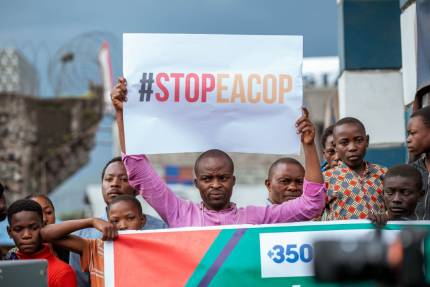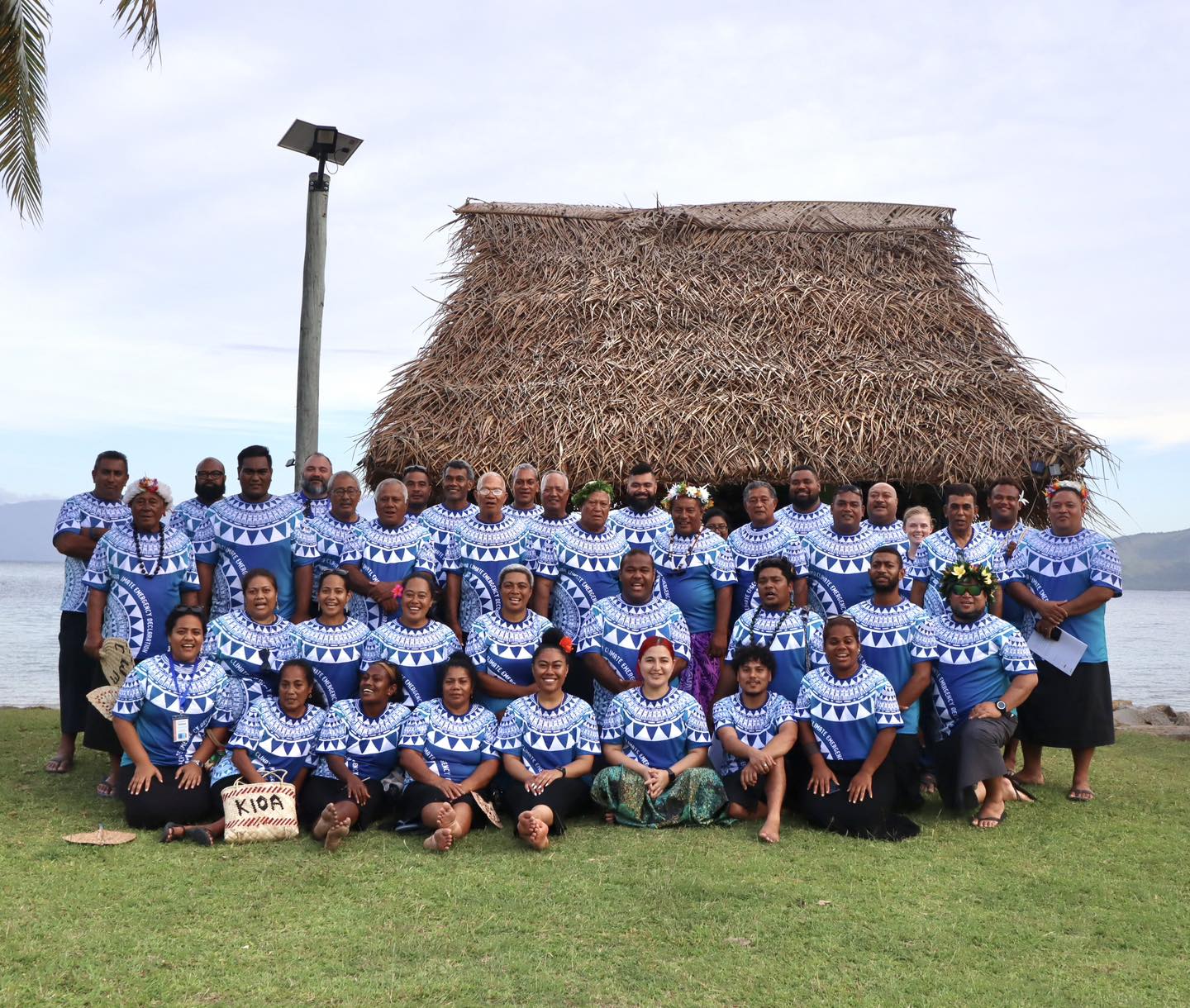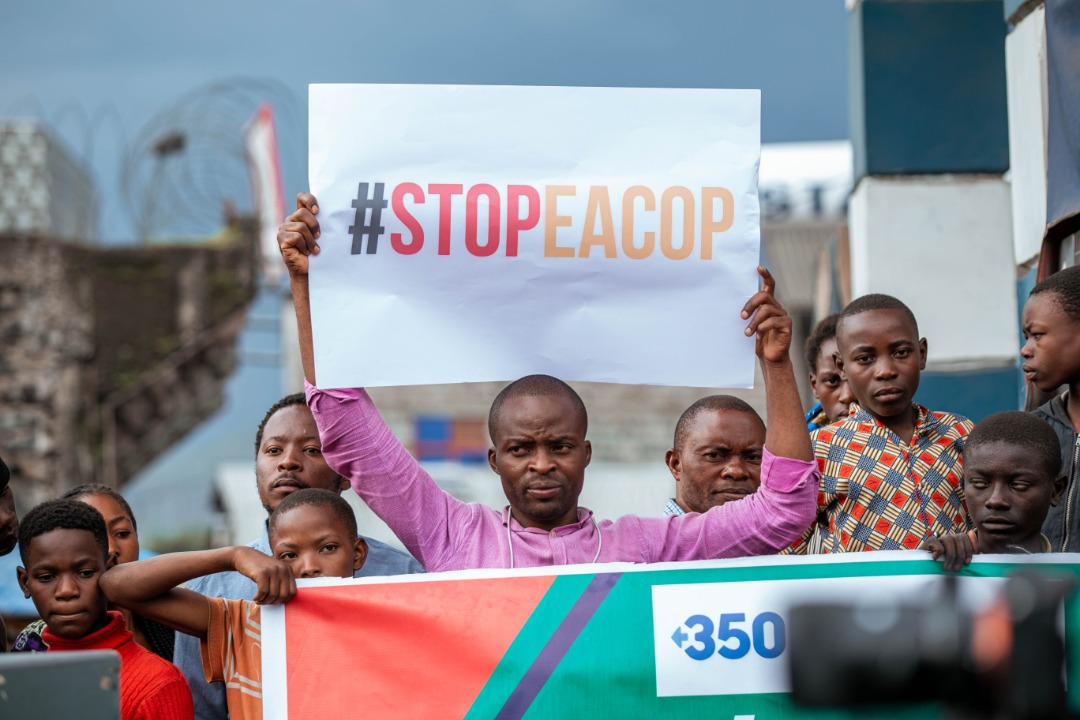
COP27 is about 2 weeks away, and in this edition of the Fossil Free Newsletter we will bring you lots of highlights of how our movement is organising around the world to put pressure on decision makers at the conference — as well as how you can get involved!
Even if COPs are usually not the space where real climate action happens, they are part of the global effort to tackle climate breakdown. For solving this global crisis, we need global collaboration, and COPs are a crucial opportunity for us to spotlight the change we want to see. This year, the conference happens in Africa, the continent most affected by the impacts of the climate crisis. And we are taking the lead from activists in the continent to show that every fraction of a degree matters.
This newsletter is also available in French and Spanish.
Why don’t you join our Fossil Free mailing list for all the latest stories on climate organizing from around the world. Stories that matter. Campaigns that inspire. All delivered directly to you every month.
In Case You Missed It
From Cape to Cairo #Road2COP
How are you feeling about a trip through Africa?
From October 22nd to November 16th, 350Africa.org will be putting a spotlight on several fights happening across the continent to stop climate change and fossil fuel projects. Wherever you are, you can join our online “caravan” and get a deep dive on the work of grassroots groups and movements, from South Africa to the Democratic Republic of Congo, and stopping in Uganda and Tanzania.
This virtual caravan sets the ground for what activists from across Africa expect from COP27, and exposes the fossil fuel and finance industry’s role in accelerating the climate crisis. The first stop was in South Africa, featuring the Fair Finance Coalition and unpacking what climate finance and the Just Energy Transition Partnership (JETP) mean. Next, we will stand in solidarity with 40 local organisations from Uganda, Tanzania, and the DRC.
Tears of Resilience
Grassroots communities, civil society, and NGOs gathered in the island of Kioa, in the Pacific, to prepare for bringing a united voice to COP27. The result was the “Kioa Climate Emergency Declaration“, calling for greater action on mitigation and adaptation, for loss and damage (which means addressing the harm already caused by the climate crisis) to play a more central role in the negotiations, and for the creation of more equitable climate finance arrangements.

Pacific peoples continue to lead by example by advocating for a just and equitable response to the threats of the climate crisis. And Kioa was not chosen by chance: the community had to relocate from Tuvalu to this new piece of land, which was purchased from Fiji in 1946 to secure the future of their people. They have first hand experience of migration and mobility due to climate change, and share so much wisdom and learnings – we will be eager to hear more on this as they continue to plan out their journey to COP.
Vaca Muerta is an ‘economic bomb’
Argentina’s huge shale gas and oil reserves in the Patagonia region have been sold by the fossil fuel companies as the solution to energy dependence and the stranglehold of foreign debt. But the truth is that that’s a trap!
Last week, 350 Latin America released the first part of the in-depth report ‘Vaca Muerta: an oil and gas trap’. The study digs into the real (and often hidden) costs of fracking in Vaca Muerta, and researchers have uncovered that the sum exceeds TRILLIONS of dollars.
Now, what this means is that if we don’t stop this carbon bomb right now, the social and environmental damage that has already affected thousands of communities would extend to burdening the entire country.
Massive protest in Paris against inflation and climate crisis
The consequences of inflation, rising cost of living and climate impacts have become a global burden for many households and have taken tens of thousands of protestors to the streets in Paris last week. They showed up in numbers to show their anger against the bite of rising prices and climate inaction, highlighting that there is no real solution without climate justice.
 Demonstrators take part in a protest – Stephane Mahe/Reuters
Demonstrators take part in a protest – Stephane Mahe/Reuters
As we have seen in the past few months, the country and parts of Europe have been baking with heatwave after heatwave with scorching temperatures. The people have had enough and are demanding action from their leaders.
One to Watch
A broken promise by the World Bank has now led to the world paying.
It all began when promises were made and commitments to the Paris Agreement were agreed on. Yet as a major player in the banking industry, it has come to light that they have provided nearly $15 billion of finance directly to fossil fuel projects since the agreement was signed in 2015.
Finances promised to renewable energy have flowed to fossil fuels projects instead. Which in turn continue to damage our environment, our earth, causing even more intense climate impacts.
We need to remind the leaders that we need to go back to those promises they made and ensure there is a real shift to renewable energy. Change the money flow, and let’s protect our earth.
USE YOUR POWER
Stop EACOP Global Week of Action
By the time you’re reading this, hundreds of people around the world have already come together to put pressure on banks, insurers and companies which are financing the huge pipeline planned to be built between Uganda and Tanzania – the East Africa Crude Oil pipeline (EACOP). But don’t worry, it’s still time to join the crowd and add your name!
From October 24 to 30, the Stop EACOP Global Week of Action will showcase the global dimension of this fight, with digital actions across several regions of the world.. The plan is to really bring on the pressure on EACOP’s financiers and backers in the lead up to COP27.

SKILL UP YOUR ACTIVISM
How are climate change and human rights connected?
At 350.org we fight for climate justice, and that means understanding that the real solutions for the climate crisis are those focused on equity – and that social, environmental, economic, gender, racial and climate issues are sorely connected. .
The impacts of the climate crisis are already everywhere and affect people deeply – hitting harder those in most vulnerable areas or social conditions, who have often contributed the least to worsening this emergency.
Amnesty International offers an online free course (in English) that analyses the bridges between climate change and human rights. Check it out:
Quote of the month
“COP26 and other COPs have not been inclusive, and in COP27 I want to see the inclusion of Indigenous people in Africa. The so-called marginalised communities – the communities that have been intentionally erased. I want to see the voices of those communities. And since it is happening in Africa, can we have Africa take charge for once?”
Irene Aswa – Ecological Justice, Kenya
The post Fossil Free Newsletter – Are you ready to join our COP journey? appeared first on 350.


0 Commentaires